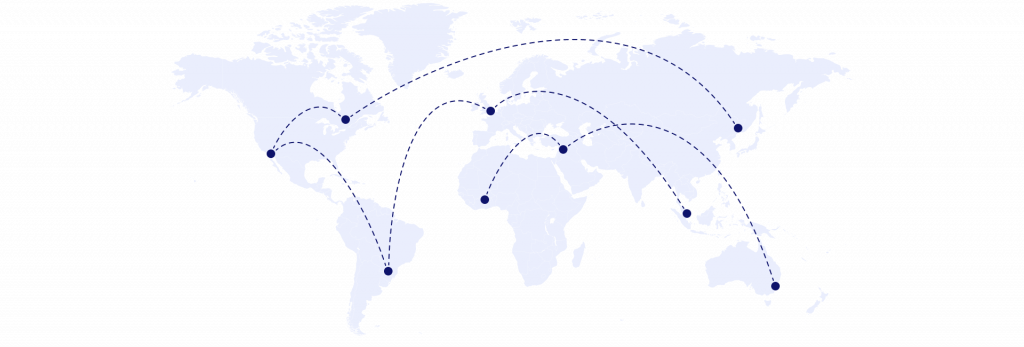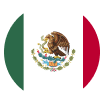How to open a business account in Australia
Last updated: 4 Sep 2025
Discover the step-by-step process of opening a business account in Australia
Key takeaways
- A business account simplifies financial management for sole traders, SMEs, and established companies
- When opening a business account, consider your requirements for international transactions, currency exchange, and online banking
- Security and ease of integration are critical when choosing a business account provider
- WorldFirst offers a multi-currency account for global businesses with zero setup costs, competitive exchange rates, and high security

Opening a business account in Australia is a key step for managing your company’s finances. You can separate personal and business transactions, streamline cash flow management, and keep your financial records clean for tax and reporting purposes.
With a dedicated business account, you can handle everything from paying employees and suppliers to receiving payments from customers.
In this blog, we’ll guide you through the steps to open a business bank account in Australia, including the documents you’ll need, what to look for in a provider, and how to choose between traditional banks and modern alternatives. We’ll also show you how a global business account from WorldFirst can simplify international payments and save your business time and money.
Table of Contents
What is a business account?
A business account is a special financial account for businesses. Setting up a separate business bank account makes it easier to manage smooth financial operations.
Who can open a business bank account in Australia?
Let’s take a detailed look at the common business structures that can open a business bank account in Australia:
Sole traders
A sole trader is an individual running a business independently. They are responsible for running the whole thing, though it’s also possible for sole traders to employ people.
Company
A registered company is an entity with its own legal obligations. The business owner’s assets are not considered part of the company unless the owner invests them. Companies in Australia may be required to have an ABN or ACN registration.
→ Unsure about which one your company might need? Check out our ABN vs ACN comparison.
Partnership
Various people or entities come together in a partnership to run a business without forming a separate company. Each partner can have a different share percentage and responsibilities.
Trust
A trust is a legal entity in which a trustee is responsible for carrying out business on behalf of the members or beneficiaries. A trustee can be a person or a company.
Refer to ATO’s official website for more information.
Open a business account in Australia: Step-by-step process
Take a look at the look the steps to open a business account in Australia:
1. Decide on the main services you will require
There is no right or wrong answer when choosing the best business account. The right account for your business depends on your exact requirements and how you plan to use it.
Consider these factors:
- Will you make frequent international transfers?
- Do you have suppliers overseas?
- Is your business expanding internationally?
- Are you currently struggling with low profit margins due to high transaction costs?
- Do you collect payments from customers in different currencies and across different regions?
- Do you prefer to manage your banking online?
2. Choose a service provider
Choose a business bank account provider with features that align with your main business requirements. More importantly, your provider should be able to support you as your business grows. Take a look at our complete list of best business accounts in Australia.
By setting up a business account with WorldFirst, fast-growing global businesses can send payments to overseas suppliers and collect payments from 100+ marketplaces and payment gateways.
With a World Account, you can pay suppliers, partners, staff and tax authorities in 40+ currencies to expand your market access and global reach.
You can also create local currency accounts in 15+ currencies, including GBP, USD, CAD, EUR, AUD, NZD and CNH. You get access to competitive exchange rates, leading to improved profit margins.
3. Gather the documentation
You will be required to submit important documents related to your business for verification purposes. The exact documents required will depend on your provider.
Here are some standard documents that you will be required to provide:
Australian Business Number (ABN)
You might be asked to provide your company’s ABN for verification. An Australian Business Number (ABN) is a unique 11-digit number that identifies registered businesses in Australia, including sole traders, companies and partnerships. If your business is registered with ASIC and you already have an ACN, you will also be asked to provide that.
(Unsure about your ABN? Follow these steps to find your ABN)
Tax File Number (TFN)
A tax file number or TFN is a unique number issued to businesses by the Australian Taxation Office (ATO). It is usually used for taxation purposes.
Proof of Identity documentation
You’ll also have to provide identification documents, such as your passport or driver’s licence, to verify your identity.
Charges and fees of business bank accounts
When managing a business bank account, it’s essential to understand the various fees that may apply. The best business bank accounts in Australia offer various fee structures to suit different business needs. Primarily, these are the types of fees and charges you will be expected to pay.
- Account setup fee: Some banks and payment providers may impose a one-time fee for opening a new account with them.
- Monthly fee: You may be charged a recurring fee for maintaining a business bank account. Some accounts come with no monthly fees, while others may charge a fixed amount depending on transaction limits, account features, or additional services.
- Transaction fees: These fees apply when making or receiving payments, including electronic transfers, in-branch deposits, and cheque processing. Costs can vary depending on the method used.
- International payment fees: When sending or receiving payments from overseas, you may be charged foreign transaction and currency conversion fees.
- Fee for issuing business cards to your team: Businesses that require multiple debit cards for employees may incur fees for each additional card issued. These charges can vary based on the type of card, transaction limits, and any associated rewards or benefits.
- Open 15+ local currency accounts and get paid like a local
- Pay suppliers, partners and staff worldwide in 100+ currencies
- Collect payments for free from 130+ marketplaces and payment gateways, including Amazon, Etsy, PayPal and Shopify
- Take control of spending with the World Card, a business expense card that saves you more with 1% cashback. Learn more
- Save with competitive exchange rates on currency conversions and transfers
- Lock in exchange rates for up to 24 months for cash flow certainty
Factors to consider when opening a business account in Australia
Account setup process
The account setup process can give you a good idea about how the account provider handles internal processes. If the account setup process requires piles of paperwork, long processing times and visiting the branch in person, you may want to reconsider whether you have that much time to manage the whole thing.
You are already busy running your business; you shouldn’t have to spend a lot of time trying to set up an account for your business.
Ideally, the setup process for your business account should be quick and straightforward.
Minimum deposit or transaction requirements
Some business bank accounts can have a minimum deposit or monthly transaction requirements. There can also be a minimum balance requirement that you have to maintain to avoid any penalty.
If you have a new business and aren’t sure whether you can meet the minimum deposit or balance requirement, you might want to consider a business account without these limitations.
Costs
Cost may not be the only factor you consider when you open a new business account, but it should definitely be an important factor when you compare business bank accounts. Most business bank accounts have some fixed fees attached to them, which can include transaction fees, setup fees, and account maintenance fees.
Introductory offers
Business account providers may have introductory offers to attract more customers. Introductory offers can include cashback, lower fees for the first few transactions and other discounts. You are probably not going to feel disappointed when signing up with a provider that values its customers right from the start.
Type of customer support
The best way to know if a business account provider cares about their customers is by checking their customer support. Ideally, the provider should have prompt support available through phone and email. You should also be able to manage your business banking processes online.
As you expand your business, you’ll often encounter roadblocks when dealing with finances and international transactions and you’ll need support. Choosing a provider that can offer support when you need it is important.
Security
Your business bank account should have a high level of security and the provider should be regulated by government bodies. Scammers and hackers are always working hard to bypass bank account security measures. So, choosing a provider that works hard to protect your business and your money is necessary.
Here are some of the major security features that your business account should have:
- Data encryption
- Multi-factor authentication
- Fraud detection and prevention
Ease of integration
You’ll have to import data from your business account to connect it to other business tools. The provider you choose should make it easy to integrate your business account with the major finance apps you use to run your business.
Multi-user access
Business accounts are not just used by the business owner. They also need to be accessible to the accountants, finance team members and other employees. That’s why you should make sure your business account offers multi-user access.
Alternative to business bank accounts: Open a global business account with WorldFirst
WorldFirst is a one-stop digital payment provider for global businesses and SMEs in international trade. We are focused on empowering SMEs to successfully execute their growth plans.
Your World Account offers numerous features, including:
Zero setup costs: There are zero charges for opening and maintaining your World Account. You are only charged for sending payments
Scale your business at your own pace: Your World Account has no minimum deposit requirement or transaction limits.
Simplify your global transactions: Send payments in 40 currencies and receive payments in 24 currencies. You can also open local currency accounts in 15+ local currencies, including GBP, USD, CAD, AUD, CNH, EUR and JPY, all from one account
Grow where your customers are: Collect payments from 130+ marketplaces and payment gateways, such as Amazon, eBay, Square and Stripe
Protect your profit margins: There are no charges for receiving payments into your World Account. Sending payments involve a fixed transaction fee and up to 0.6% currency conversion rate on major currencies (up to 0.8% for payments on 1688.com)
Contact the support team any time: Our support team is available 24/5 via phone and email to help you with anything and everything
Your account, secured: We operate real-time fraud monitoring, blocking and alerts. Your login is secured with two-factor authentication via the Authy app
Automate integration with other apps: The World Account integrates with Xero and NetSuite, allowing you to automatically sync transactions and reduce your admin time
Give access to your team: We offer multi-user authorisation, making it easy for anyone on the team to access the World Account and manage company finances
How to open a business account in Australia with WorldFirst?
Here are the steps to open a business bank account with WorldFirst
1. Gather all the important documents
Before getting started, make sure you have the following documents:
- Your company’s basic information (including your registration number, trading address, and company structure)
- A valid ID (e.g., your passport or driver’s licence)
- Your mobile phone
- Details of all current directors registered within the company
- Valid ID for all shareholders (e.g., passport or driver’s licence)
Here’s the in-depth list of documents you can provide for account verification.
2. Add the country or region of your business
Select the country or region where your business is registered using the dropdown list
3. Verify your email address
Enter your email address and click on the ‘send code’ button. Verify your email address by entering the code shared over email. Create a secure password for your account.
4. Verify your mobile number
Enter your mobile phone number and click ‘Send code.’ When prompted, enter the 6-digit verification code sent to your mobile phone number via SMS.
5. Provide information about your business
Enter your company registration number and other company details, including company name, type of business, and registered address.
6. Provide proof of identity
Select which country your ID was issued in and upload ID proof.
7. Provide information about company directors and ownership
Add details about registered directors and major shareholders, and upload the necessary documents.
Once your account is verified, you can start using it right away. You can also open local currency accounts based on your current business requirements.
FAQs
Is it possible to open a business bank account in Australia with a foreign corporate entity?
To open a business bank account in Australia, your company must be officially registered in the country and possess an Australian Business Number (ABN) or Australian Company Number (ACN).
Alternatively, if you only need an AUD bank account and you don’t plan to register your company in Australia yet, consider getting a multi-currency account. For instance, if you have a UK-based business, you could get a multi-currency account to send, receive, and hold funds in AUD.
Can you open a business bank account online?
Yes, you can open a business bank account online, though it depends on your bank or payment provider. While many Australian banks let you open a business account online, some still require you to come into a branch for verification. The specific requirements and procedures can vary depending on the bank and your business structure.
Does a company need an ABN to open a bank account?
The ABN is necessary for businesses operating as sole traders, partnerships, or trusts, while the ACN is required for registered companies. Some banks may also request additional documentation, such as business registration details and proof of identity, for company directors or owners. Always compare business accounts for their exact requirements.
Disclaimer: The information contained is general only and largely our views. Before acting on the information you should consider whether it is appropriate for you, in light of your objectives, financial situation or needs. Although information has been obtained from and is based upon multiple sources the author believes to be reliable, we do not guarantee its accuracy and it may be incomplete or condensed. All opinions, estimates, mentioned products/services and referenced material constitute the author’s own judgement as of the date of the briefing and are subject to change without notice. WorldFirst shall not be responsible for any losses or damages arising from your reliance of such information.


Top no-fee bank accounts for businesses in Australia
Explore top no-fee business accounts in Australia for everyday banking, global payments and better control over cash flow.
Nov / 2025
The best business transaction accounts in Australia
Compare top business bank accounts in Australia and explore smarter global solutions to manage local and international payments.
Nov / 2025
Foreign transaction fee: Meaning and when it applies to you
Learn what foreign transaction fees are, when they apply and how to minimize them with effective strategies for your business.
Nov / 2025Choose a category below for more business, finance and foreign exchange support from WorldFirst.
- Almost 1,500,000 businesses have sent US$500B+ around the world with WorldFirst and its partner brands since 2004
- Your money is safeguarded with leading financial institutions





































